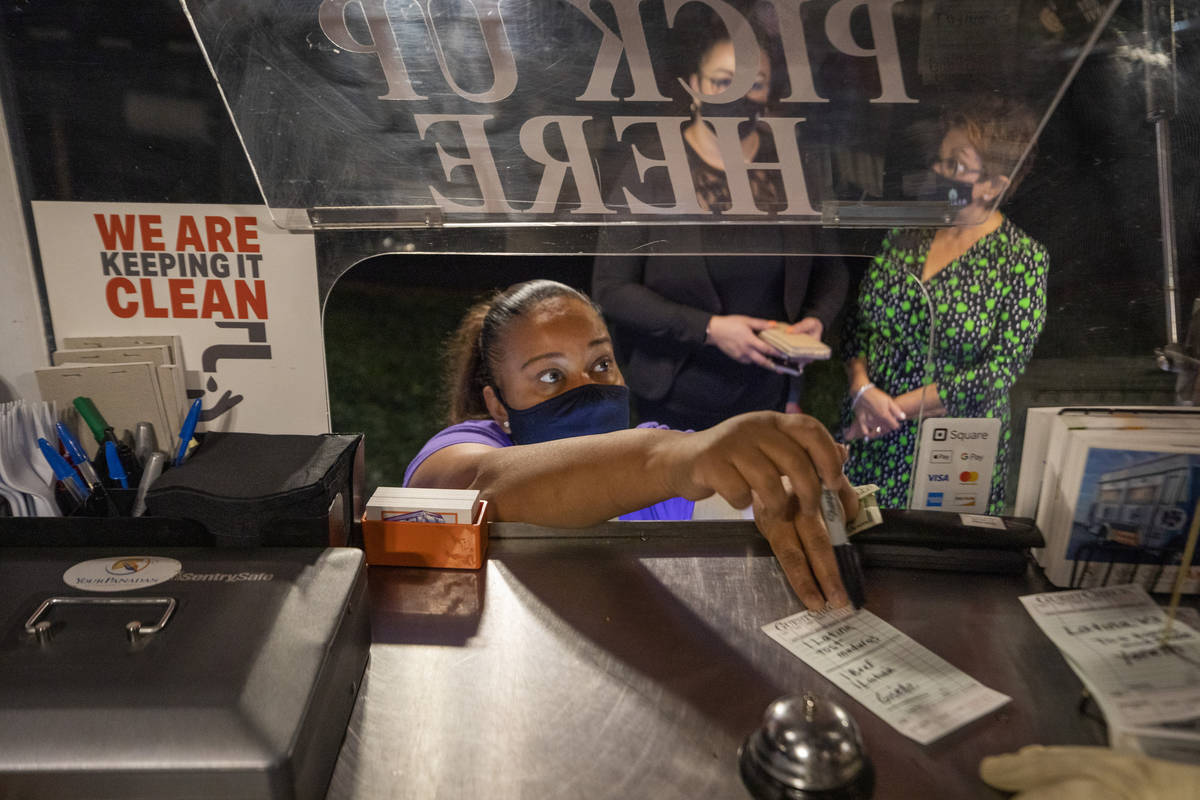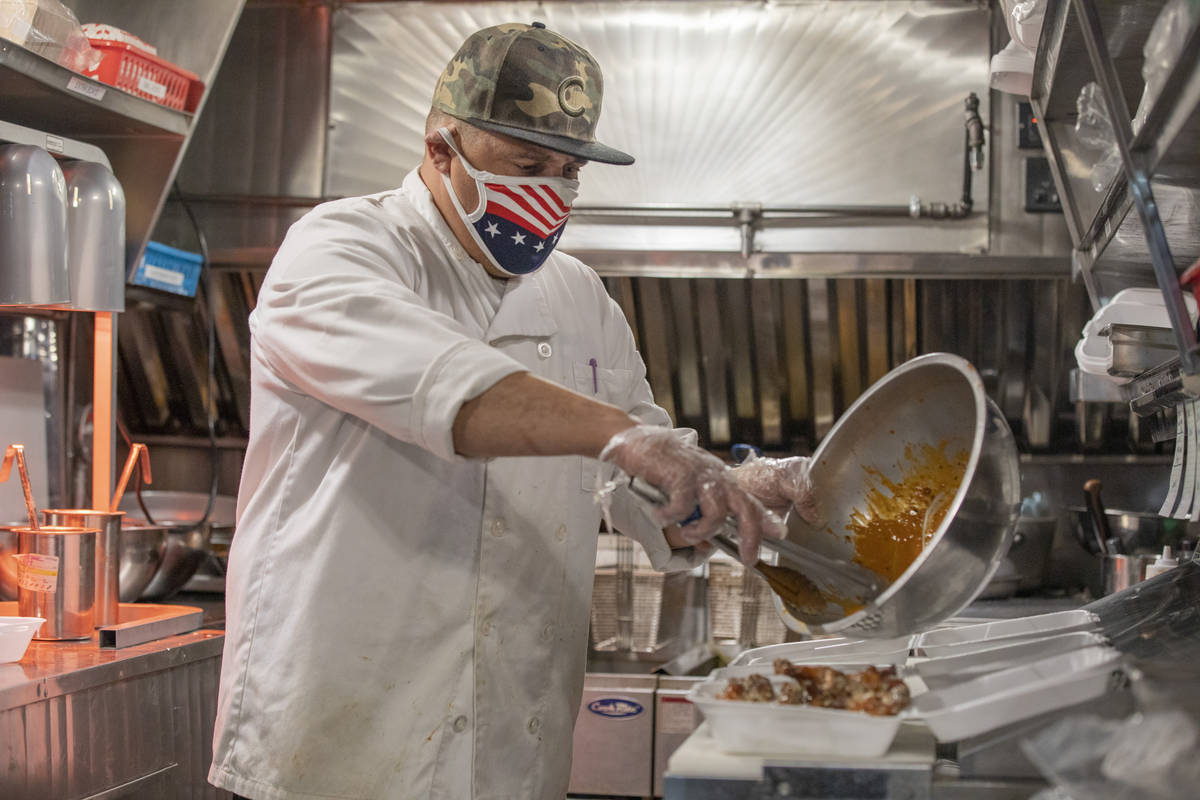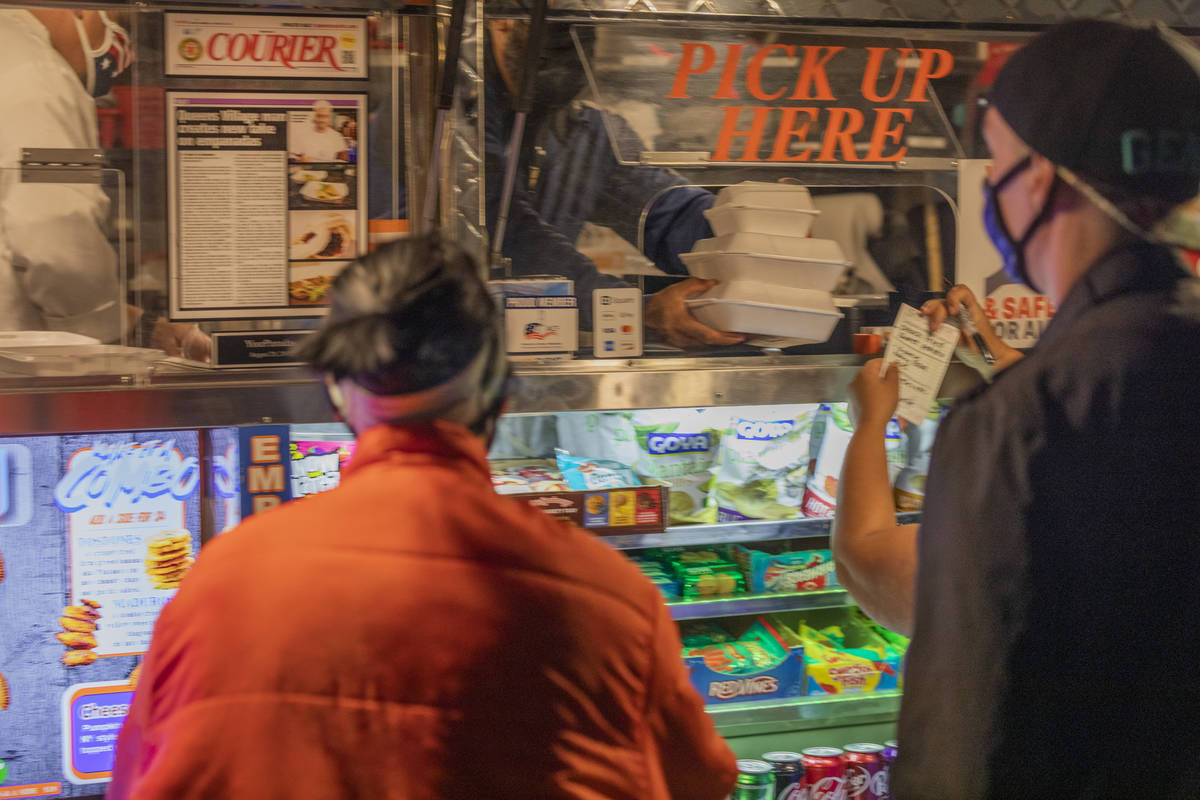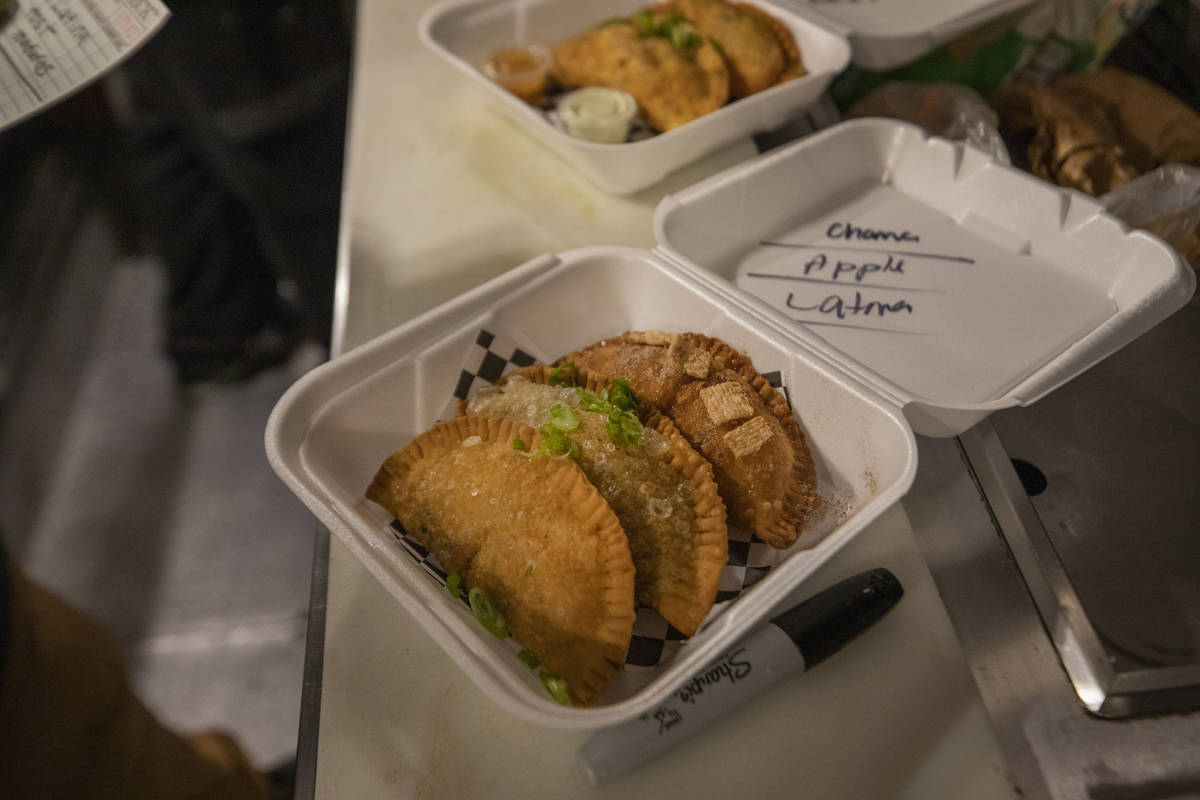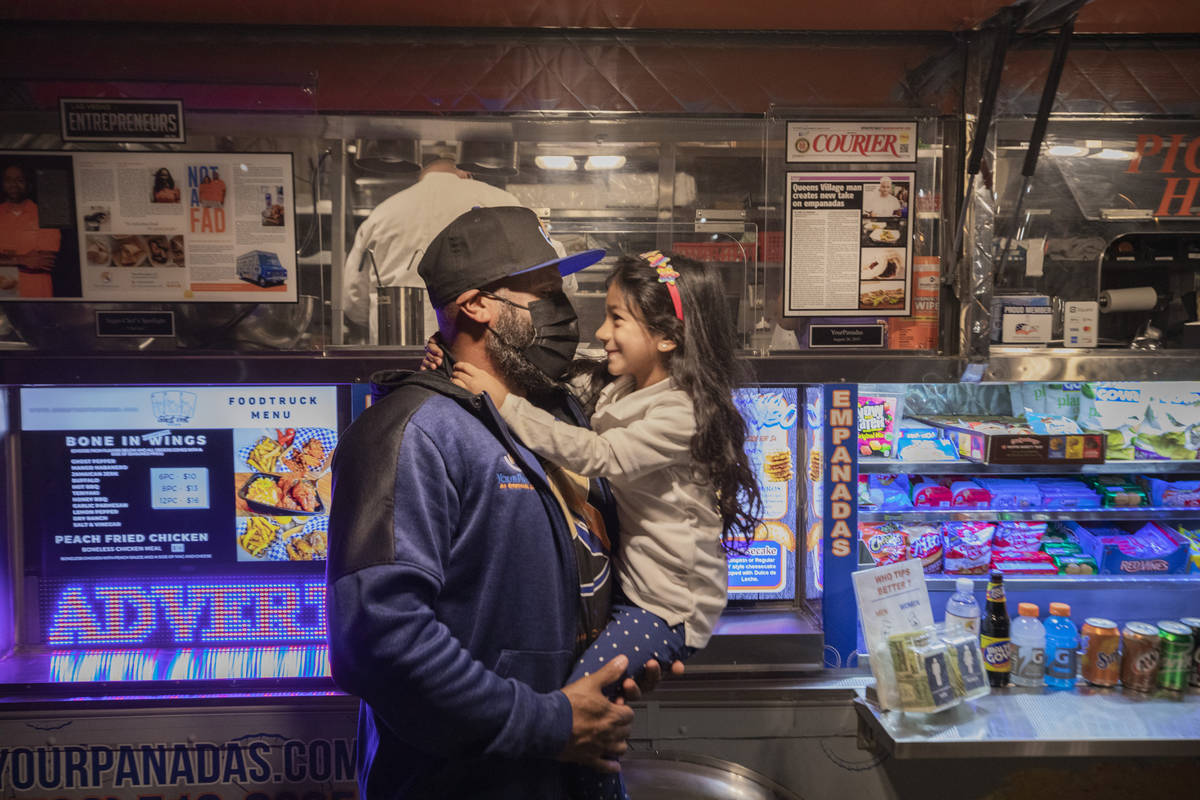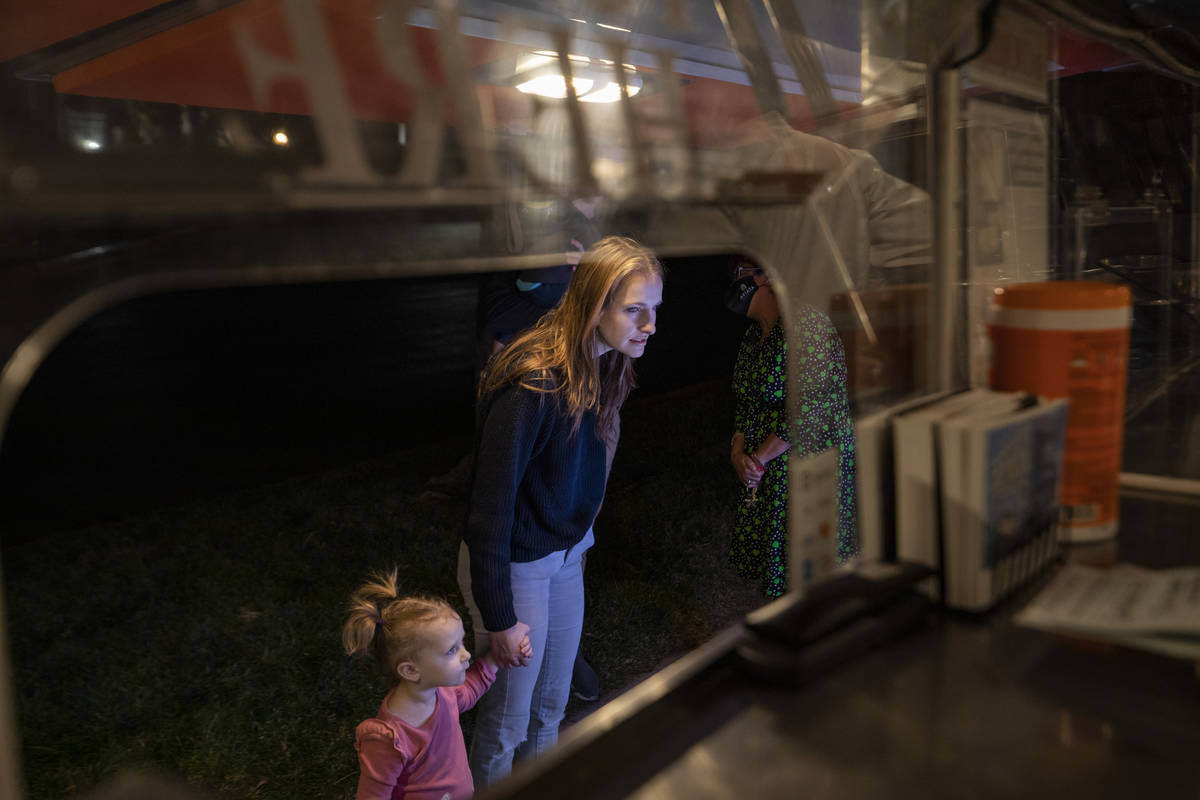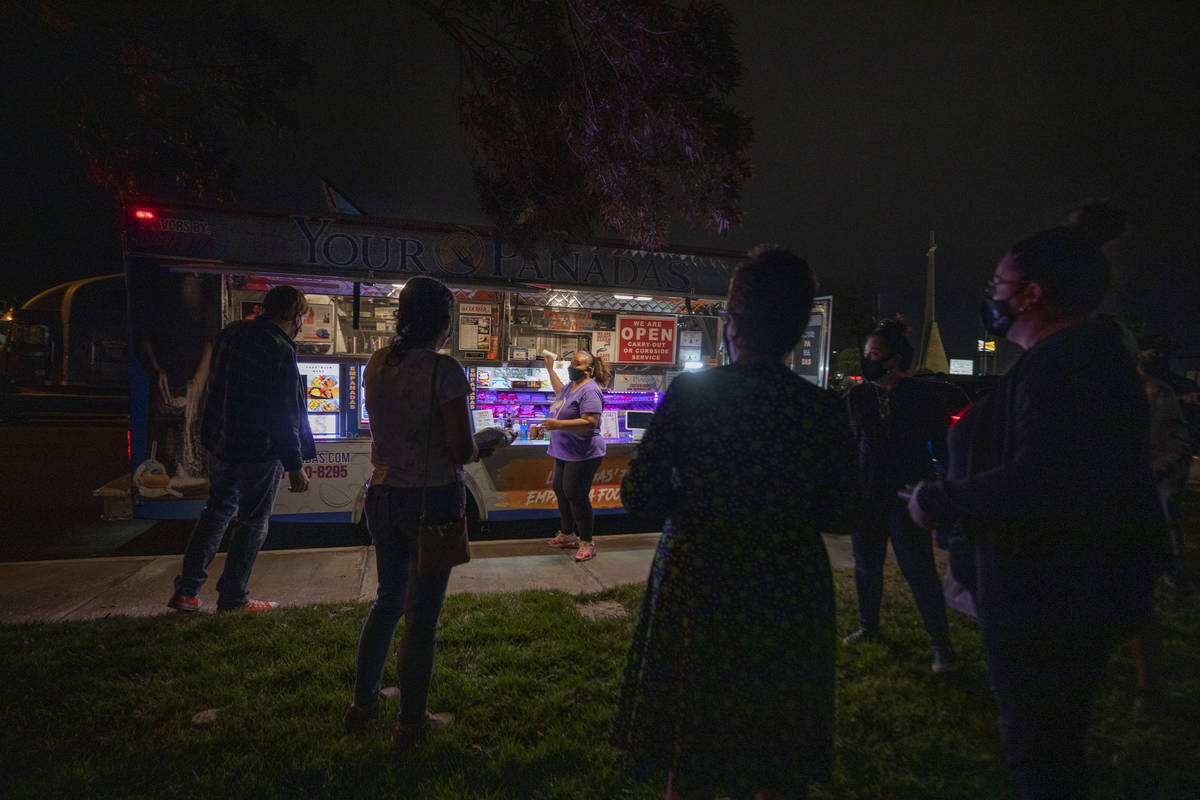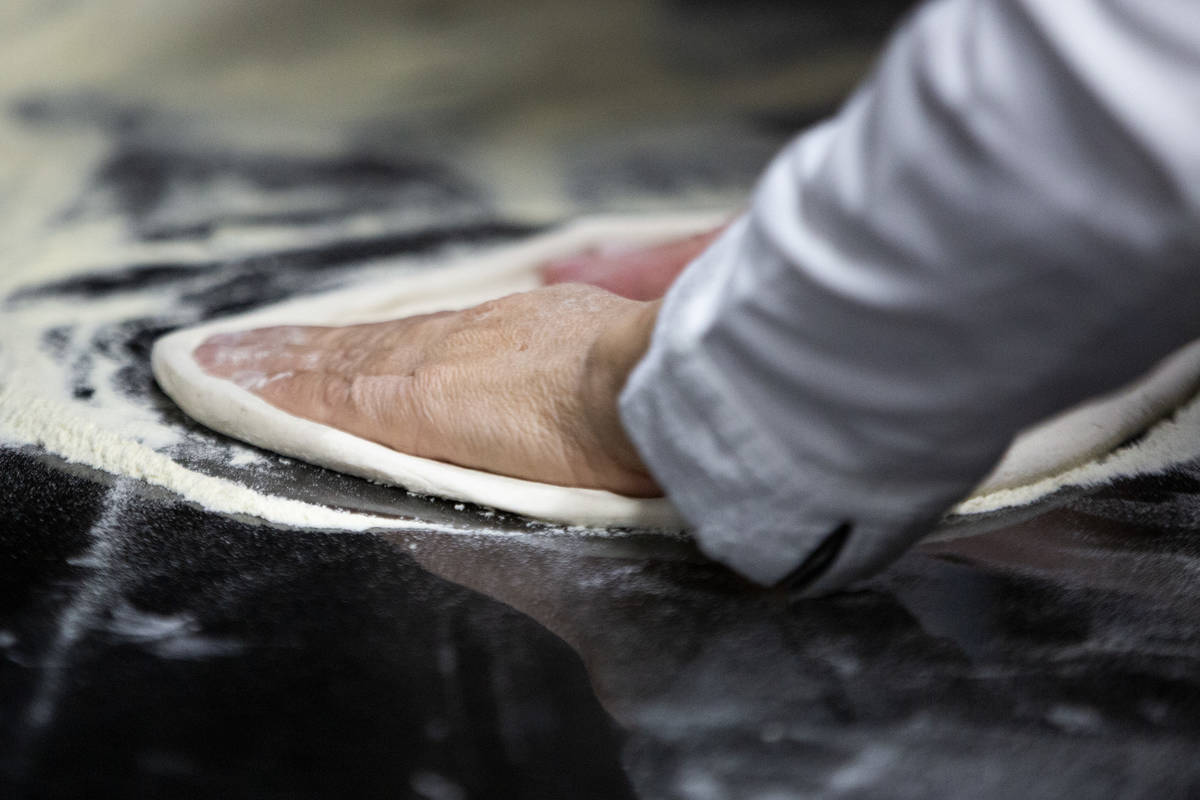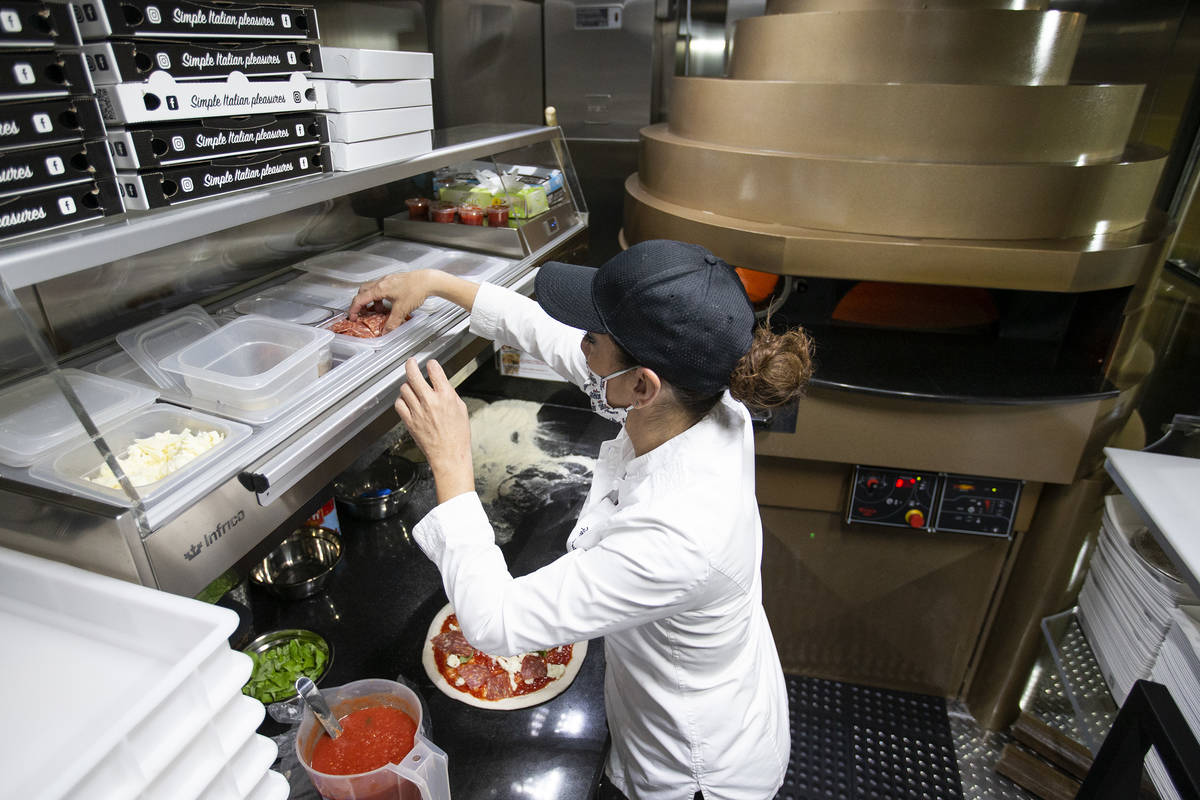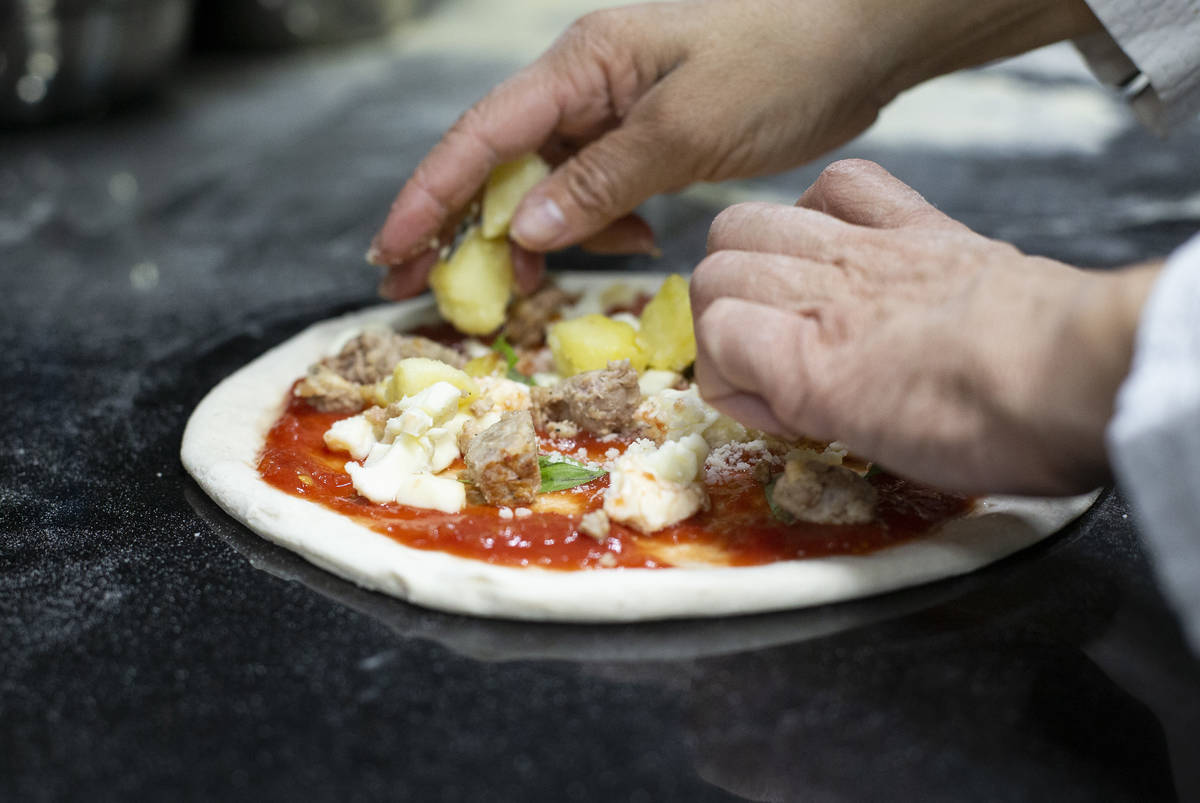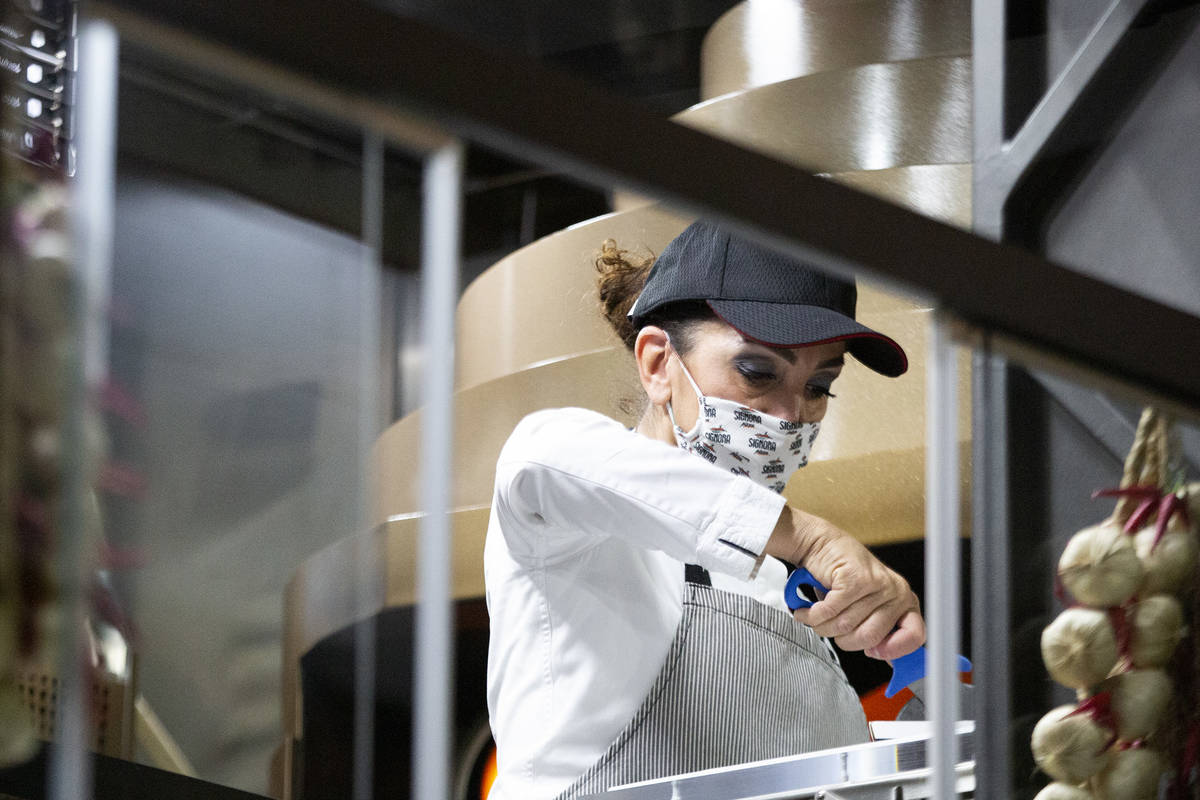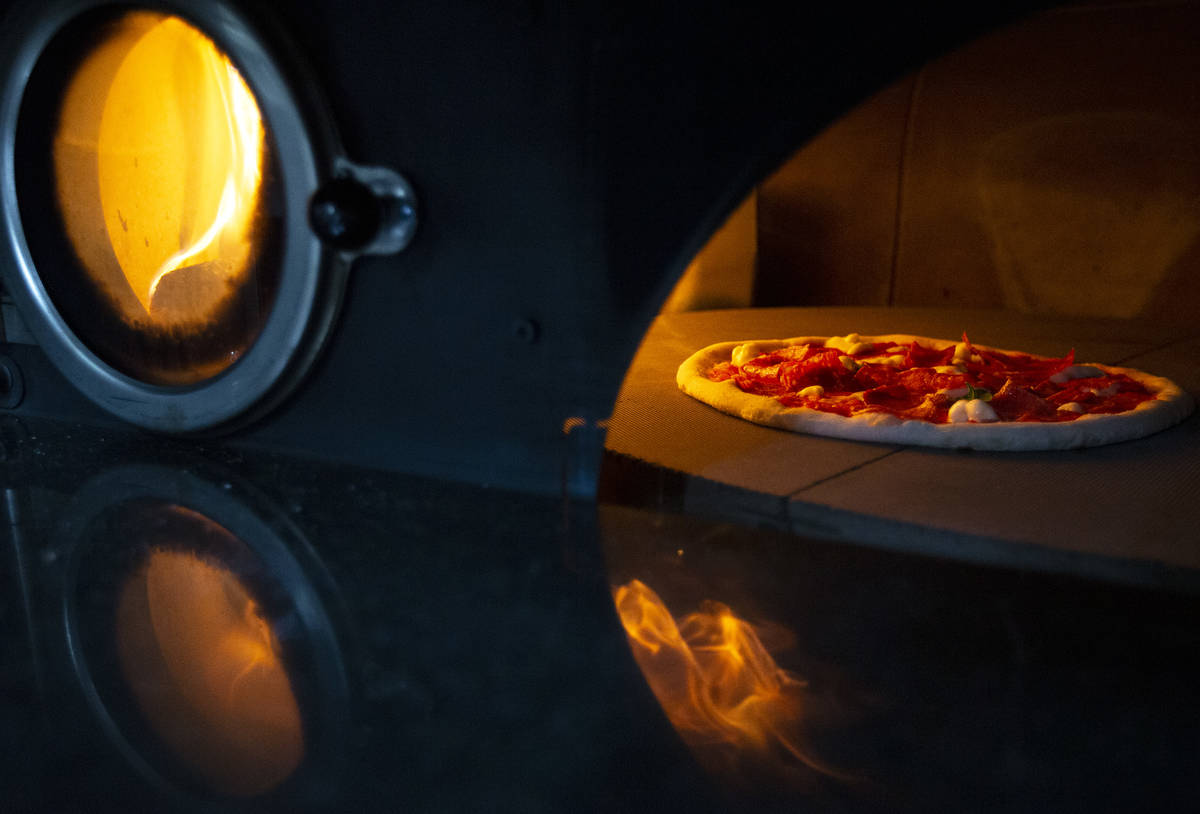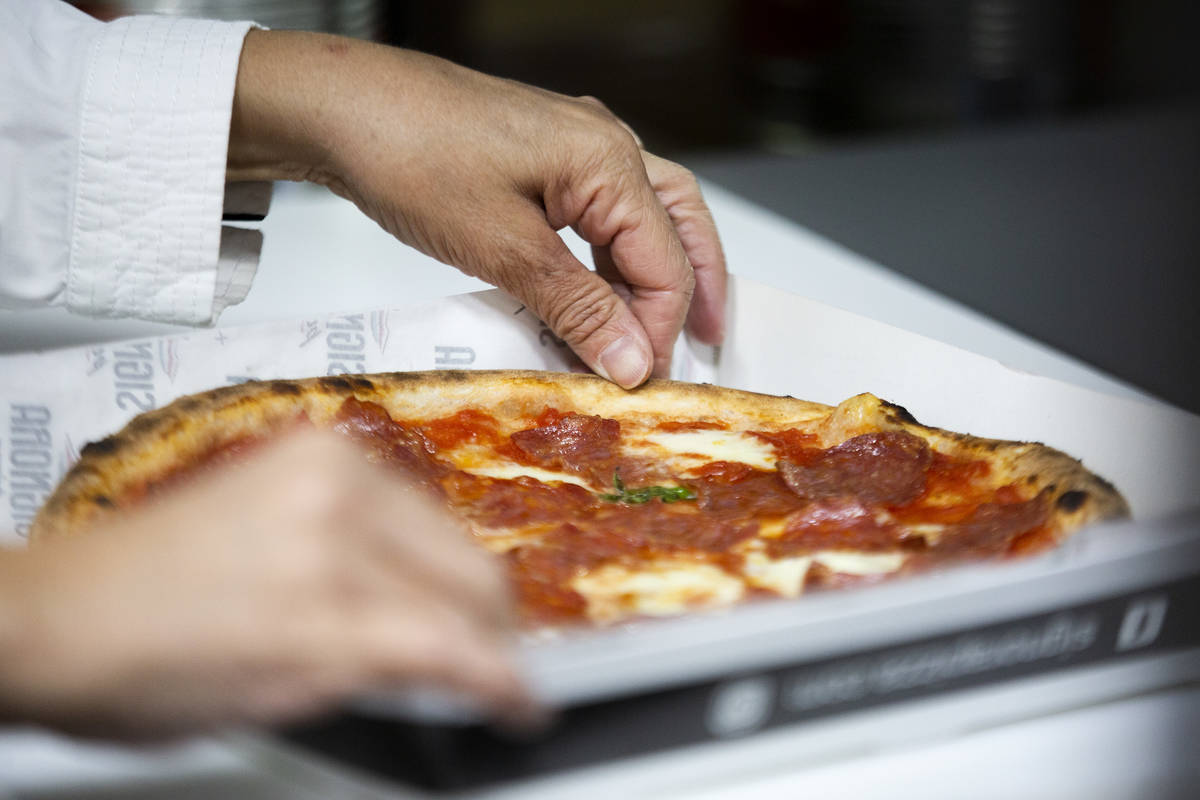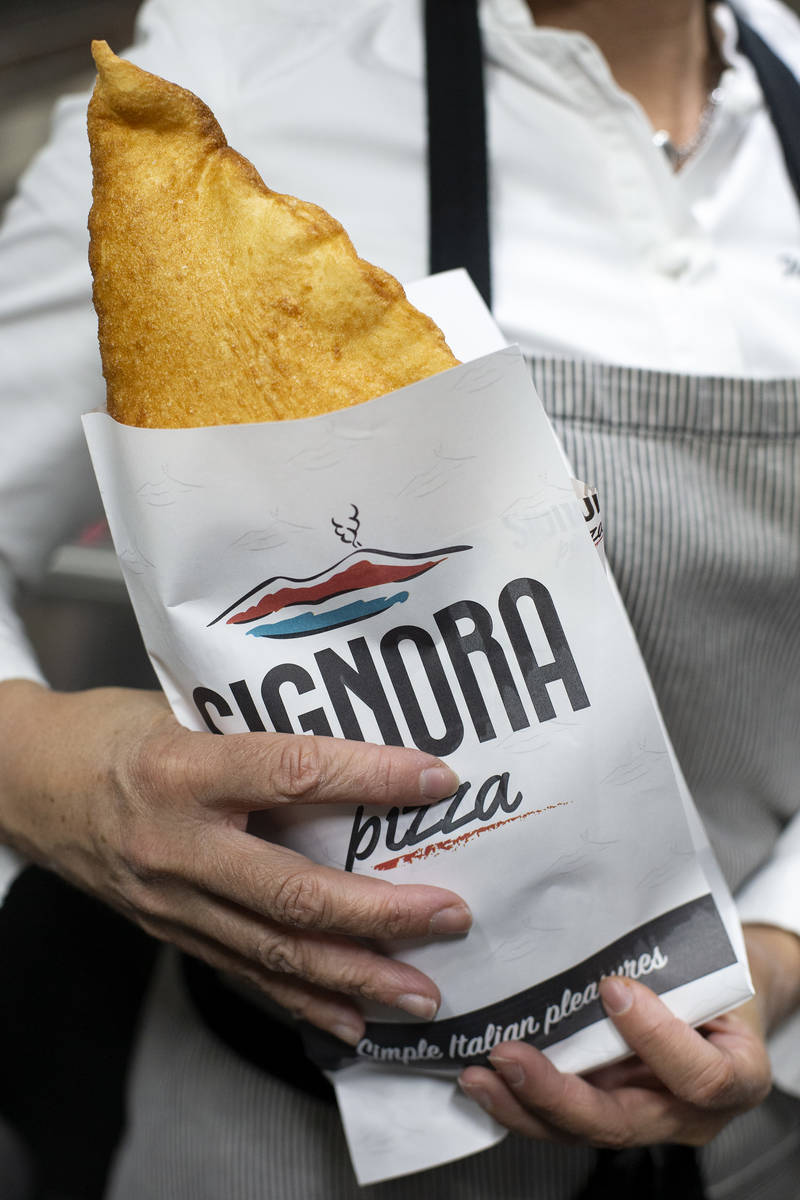Food truck owners offer diverse outdoor dining during pandemic
Floriana Pastore was a few minutes late opening the Signora Pizza truck on a recent Monday night because of Arts District road construction. By the time she rolled open the large glass windows of her trailer in front of Servehzah Bottle Shop and Tap Room and fired up its rotating wood oven, patrons already were waiting to order. She quickly prepared a Neapolitan pie for a pair of guests before moving on to a fried pizza.
“We are doing the fried pizza that looks like calzone and the wallet pizza that is folded in four,” Pastore explains of her offerings. “And we do the regular sliced (pizza), the open one.”
Related: Here’s how to find food trucks and what to eat in Las Vegas Valley
She calls her menu, which also includes stuffed zucchini flowers and fried strips of dough known as angioletti, “Neapolitan street food.” It’s as far from traditional food truck fare as her high-tech converted shipping container, custom built by her husband in Italy, is from a traditional food truck. Yet both are prime examples of Las Vegas’ increasingly diverse food truck community.
With the uncertainty and unease surrounding dining indoors, food trucks have been a particularly attractive option for many diners and chefs this year. That’s just one of the reasons you’ll find a wider variety of cuisines than ever represented in the more than 300 food trucks licensed to operate in the valley.
‘Restaurant on wheels’
As impressive as her truck may be, it’s not the way Pastore had planned to introduce Las Vegas to her cooking.
“In our plan, there is a pizzeria,” explains the four-time World Pizza Champion, who moved to Las Vegas late last year.
“Because of COVID, we said, ‘All right, let’s start with the truck.’ And maybe next year, as soon as I find a location that I like, we definitely will open a (brick and mortar) pizza/pasta concept.”
For Trisha Nuckles, who spent a decade making custom cakes in Las Vegas bakeries before launching her Cake Wagon truck last May, it was all about the numbers.
“I found that the most cost-effective and easiest way to get out there and reach more people would probably be doing something more mobile,” she says of her built-to-order dessert business. Moreover, she adds, customers have opened their minds to what a food truck can be.
“It’s not that roach coach mentality anymore. It’s really grown to fully getting an experience of a restaurant on wheels.”
When veteran chef Will Staten wanted to expand his Ragin’ Cajun Cookin’ catering brand, he decided the next step should be mobile cooking. His Cravin’ Creole food truck began serving gumbo and po’boys in parking lots across the valley over Labor Day weekend, as the first step toward a larger empire. While long-term goals include a line of home products, and even apparel, for now he believes trucks are what the market is craving.
“We are the answer that people have been looking for in this time period, just because people are scared. People are hesitant to do things in large groups, and being able to pick up your food to go — with your wife, your spouse, or your kids — is honestly the smartest way to go.”
During the early phase of the pandemic, when dining rooms closed and restaurants struggled to adapt to skyrocketing takeout and delivery orders, impromptu food truck gatherings boomed.
“In the beginning of the pandemic when everything was shut down, food trucks were still up and running, and we could still park in different areas,” says Jonathan Batista, owner of the YourPanadas empanada truck. “Now bars and restaurants are slowly starting to open back up, and people are starting to go out and eat,” Batista continues. “And now they’re trying to crack down.”
Codes and regulations
The “they” to whom the chef is referring is a plethora of government agencies. On the federal level, they include the Department of the Interior, which issued letters this fall warning food truck operators against the commercial use of a Bureau of Land Management lot on the corner of Blue Diamond Road and Durango Drive. Locally, the Southern Nevada Health District is charged with enforcing county health regulations about where and when food trucks can operate, as well as how many can band together for events, and under what circumstances.
“The tricky thing about trucks is that they have to fall under the health department regulations, and then the business license regulations also,” the SNHD’s Jacob Billing explains. “For ours, if they’re not at a special event, then they’re restricted to 30 minutes at one location, and they can’t operate within 250 feet of another vendor. So once there’s more than one, that would be cause for them to have to (apply for) an event coordinator permit.”
Billing says the rules haven’t changed since the start of the pandemic. He admits, however, that some existing regulations “are due for an update. Our regulations haven’t been updated since 2010. Obviously, the food truck industry has changed a lot since then.”
Until changes are made, the SNHD allows trucks to apply for a waiver that will permit them to follow the more modern Nevada Administrative Code, which permits up to four hours in one location. Trucks also can apply for event coordinator permits that allow them to operate in clusters and after sundown, as long as there’s access to a restroom with running water.
One of the easiest ways for a truck to meet those requirements is to partner with a private business or organization that invites them to operate on their property and use their facilities.
“As a food truck, the easiest way that we’ve found to stay afloat and actually move upward is to partner up with the community in any way possible,” says Staten, whose regular stops for Cravin’ Creole include the parking lots of area hospitals, Boys & Girls Clubs and even a liquor store.
Batista agrees. YourPanadas makes regular appearances at Servehzah Bottle Shop and Tap Room as well as Henderson’s Bad Beat Brewing and Khoury’s Fine Wine & Spirits. And he recently made his first Friday night appearance at Aviata Apartments on Warm Springs Road, with the enthusiastic permission of complex management.
“Right now, during COVID, I think it’s especially important to engage with the residents this way,” property manager Gicelle Marenco says of the partnership. “You get off work, you can come pick up some food, go home and rest.”
Batista is optimistic that through creative solutions like this one he’ll be able to spread the word about his cuisine without running afoul of laws.
“I just want to make a living the right way,” he says. “I cook great food. I put a lot of pride into what I do. For me to go out there and put my business in harm’s way because I didn’t follow the rules is just stupid. So, I try to stay on top of it.”
Contact Al Mancini at amancini@reviewjournal.com. Follow @AlManciniVegas on Twitter and Instagram.



